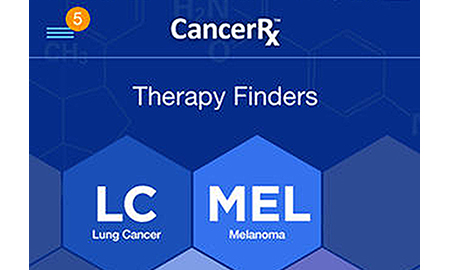Everyday Health’s professional news source MedPage Today has launched a bedside oncology tool with long-time partner CollabRx. The CancerRx app, which hopes to push past four tumor types in the next six months, includes molecular-level information that can help doctors hone in on the information most applicable to the patient in front of them, as well as offering information about breaking news, approved drugs and ongoing clinical trials sorted by patient type.
The company rolled out the app at the American Society of Clinical Oncology (ASCO) annual meeting, which is being held in Chicago. Everyday Health will also promote CancerRx through newsletters and its reliable source of word-of-mouth recommendations.
Everyday Health’s sales and marketing VP Anthony Manson describes the tool as “precision oncology” and tells MM&M that one of the reasons for developing the iOS app was because the volume of information physicians can tap into made the team feel like “it was becoming more and more difficult for a clinician to say, ‘We’re on top of things.’”
The project, which was about one year in the making, was not based solely on physician empathy—Everyday Health also sounded out website users of its online tool to find out what information clinicians wanted, and how they wanted it. “They loved the notion of having a clinical-support tool where they could find the right information for the right patient,” Manson said.
The app, which is free to physicians, also gives pharmaceutical companies the chance to engage with clinicians. Manson says the app was designed to include precision-based advertising, in addition to allowing companies to provide clinical trial data—clearly marked that it is industry supported—and new-indication push alerts that include links to approval news.
Although created with oncologists in mind, the expectation is that support staff will use it—and probably patients, too, since doctors may just turn around the handheld to share the information they’ve found. “Patients are pro-sumers anyway,” VP, Global Editorial Director, Ivan Oransky explained, adding that being able to pull up so much information “literally in your hand” can help doctors and patients decide what to do next, based on the most up-to-date information.








